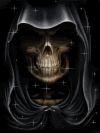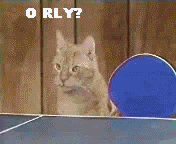Post by Mara on Mar 13, 2008 16:20:43 GMT -5
I would completely agree that the Lord of the Rings trilogy of books are classic...
And, to be perfectly honest, I DO plan on rereading them someday when I have time. They are on my list.
Part of the reason I think there are still so many fans of Tolkien (of the books, NOT the movies) is a testament to how it stands the test of time, which I think we said earlier, is one reason a novel becomes classic. It's relatable to any time frame.
I completely consider these, plus The Hobbit, to be classics.
And I really don't think "readability" should be a strict rule against whether a book is classic or not. There are several novels out there that I have trudged through, but it was all worth it at the end. Dostoevsky [Crime and Punishment, The Brothers Karamazov], Steinbeck [Grapes of Wrath], Dumas [The Count of Monte Cristo, The Three Musketeers] come to mind.
I don't think a classic has to have a low reading level in order to be appreciated. Sometimes a careful study and review of a novel brings to light new meanings.
And I'm also not saying it has to be full and wordy either, like the novels I mentioned. Sometimes something simple like a Jane Austen novel is also considered classic, even though it has complex undertones.
I think you would be hard-pressed to find a novel that did not have any complex or hidden meanings within.
I have not read Jules Verne, but I would like to someday... partly because it's one of the "classics" and partly because it just sounds interesting... Kind of in the style of The Lost World by Sir Arthur Conan Doyle (but hopefully a lot more interesting...)
Nor have I read Harry Potter -- the subject matter just don't interest me. So I can't really make a judgment on its classic-ness.
However, I would venture to say that it's not really the first of its kind, or really introduce any new themes (I see it, from afar, as a coming-of-age story, and we all know how many novels like that are around....)
Do you mean Gogol, Squallie? I have heard of him ("Diary of a Madman" and "The Nose" are very interesting). I have both books of Poe and Gogol. And I consider both to be classic.
I have both books of Poe and Gogol. And I consider both to be classic.
As for what else I would add to the list, that hasn't been mentioned... I could probably go on and on...
Perhaps Tolstoy [War and Peace], Faulkner [The Sound and the Fury], the Bronte sisters [Jane Eyre, Wuthering Heights], Cooper [The Last of the Mohicans (and all the leatherstocking series of books)], Dante [The Divine Comedy], Homer [The Illiad, The Odyssey], Virgil [The Aeneid], unknown poet [Beowulf...
I could just browse the classic section of my library and come up with a whole slew of books... plus others I think are classics in modern times.
And, to be perfectly honest, I DO plan on rereading them someday when I have time. They are on my list.
Part of the reason I think there are still so many fans of Tolkien (of the books, NOT the movies) is a testament to how it stands the test of time, which I think we said earlier, is one reason a novel becomes classic. It's relatable to any time frame.
I completely consider these, plus The Hobbit, to be classics.
And I really don't think "readability" should be a strict rule against whether a book is classic or not. There are several novels out there that I have trudged through, but it was all worth it at the end. Dostoevsky [Crime and Punishment, The Brothers Karamazov], Steinbeck [Grapes of Wrath], Dumas [The Count of Monte Cristo, The Three Musketeers] come to mind.
I don't think a classic has to have a low reading level in order to be appreciated. Sometimes a careful study and review of a novel brings to light new meanings.
And I'm also not saying it has to be full and wordy either, like the novels I mentioned. Sometimes something simple like a Jane Austen novel is also considered classic, even though it has complex undertones.
I think you would be hard-pressed to find a novel that did not have any complex or hidden meanings within.
I have not read Jules Verne, but I would like to someday... partly because it's one of the "classics" and partly because it just sounds interesting... Kind of in the style of The Lost World by Sir Arthur Conan Doyle (but hopefully a lot more interesting...)
Nor have I read Harry Potter -- the subject matter just don't interest me. So I can't really make a judgment on its classic-ness.
However, I would venture to say that it's not really the first of its kind, or really introduce any new themes (I see it, from afar, as a coming-of-age story, and we all know how many novels like that are around....)
Do you mean Gogol, Squallie? I have heard of him ("Diary of a Madman" and "The Nose" are very interesting).
 I have both books of Poe and Gogol. And I consider both to be classic.
I have both books of Poe and Gogol. And I consider both to be classic.As for what else I would add to the list, that hasn't been mentioned... I could probably go on and on...
Perhaps Tolstoy [War and Peace], Faulkner [The Sound and the Fury], the Bronte sisters [Jane Eyre, Wuthering Heights], Cooper [The Last of the Mohicans (and all the leatherstocking series of books)], Dante [The Divine Comedy], Homer [The Illiad, The Odyssey], Virgil [The Aeneid], unknown poet [Beowulf...
I could just browse the classic section of my library and come up with a whole slew of books... plus others I think are classics in modern times.











